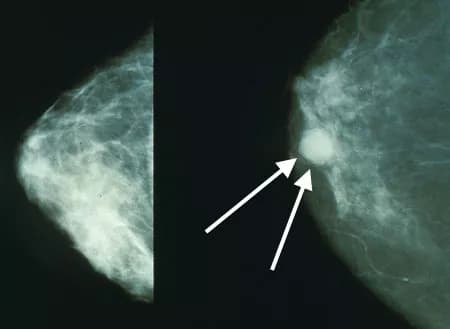
Epigenetic Editing Reveals Surprising Insights Into Early Breast Cancer Development
Changing the epigenetic code of a single gene is enough to cause a healthy breast cell to begin a chain reaction and become abnormal, according to research by Queen Mary University of London (QMUL).
The findings could lead to earlier cancer diagnosis and the potential for new therapeutics in the form of gene editing.
Epigenetic changes are a hallmark of cancer, but up until now, it has not been known whether these changes on their own are sufficient to push healthy cells down the cancer path.
Using a CRISPR-dCas9 epigenetic editing tool, the researchers methylated different genes in healthy breast cells and found that those changes were sufficient to cause the cells to undergo 'hyperproliferation' -- abnormally rapid cell division which is an early stage of tumour initiation.
The research, using cells from the Breast Cancer Now Tissue Bank and due to be published in Nature Communications, also shows that the epigenetic changes are inherited as long as the cell divides, and that the team's manipulations permanently and negatively affected the biology of a normal breast cell from a healthy individual.
Lead researcher Dr Gabriella Ficz from QMUL's Barts Cancer Institute said: "It's surprising that cells from several healthy individuals are so permissive to gaining this epigenetic change and that one 'hit' from an epigenetic editing tool is sufficient to set off this chain reaction of epigenetic inheritance and establish a cancer cell-like gene expression signature."
The findings may help scientists to better understand the earliest epigenetic changes which can initiate abnormal cell processes, and the transition between the pre-disease state and cancer. This could help with the development of new biomarkers for earlier diagnosis.
In the future, epigenetic editing could also be used to design novel therapies by initiating permanent changes to cell biology. This may be a more viable or alternative way forward for gene editing as any potential mistakes would be less damaging than directly editing the DNA sequence, and epigenetic editing would be more easily reversible if needed.
Dr Ficz also explains that the findings could have an impact on our knowledge of ageing and cancer: "Epigenetic fluctuations happen all the time in our cells. We know that, during ageing, our epigenome is progressively distorted -- so called 'epigenetic drift'. It will therefore be exciting to find out if this drift is responsible for initiating or accelerating ageing-associated diseases. Age is the biggest risk in cancer so our work highlights the importance of understanding the mechanism behind epigenetic drift."
Materials provided by Queen Mary University of London. Note: Content may be edited for style and length.
Disclaimer: DoveMed is not responsible for the accuracy of the adapted version of news releases posted to DoveMed by contributing universities and institutions.
References:
Emily A. Saunderson, Peter Stepper, Jennifer J. Gomm, Lily Hoa, Adrienne Morgan, Michael D. Allen, J. Louise Jones, John G. Gribben, Tomasz P. Jurkowski, Gabriella Ficz. (2017). Hit-and-run epigenetic editing prevents senescence entry in primary breast cells from healthy donors. Nature Communications. DOI: 10.1038/s41467-017-01078-2
Related Articles
Test Your Knowledge
Asked by users
Related Centers
Related Specialties
Related Physicians
Related Procedures
Related Resources
Join DoveHubs
and connect with fellow professionals

0 Comments
Please log in to post a comment.